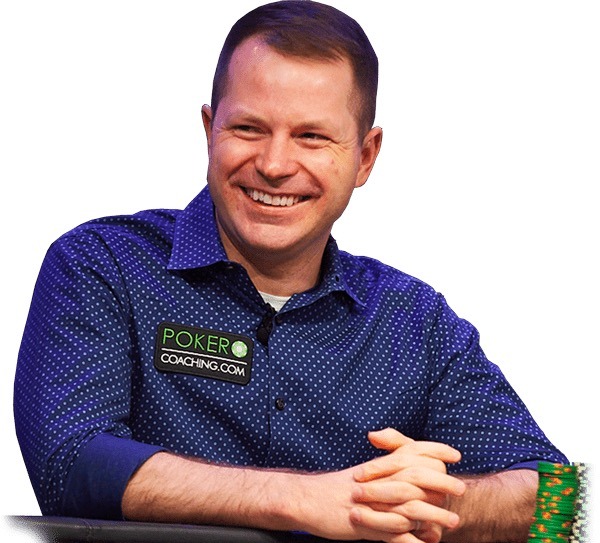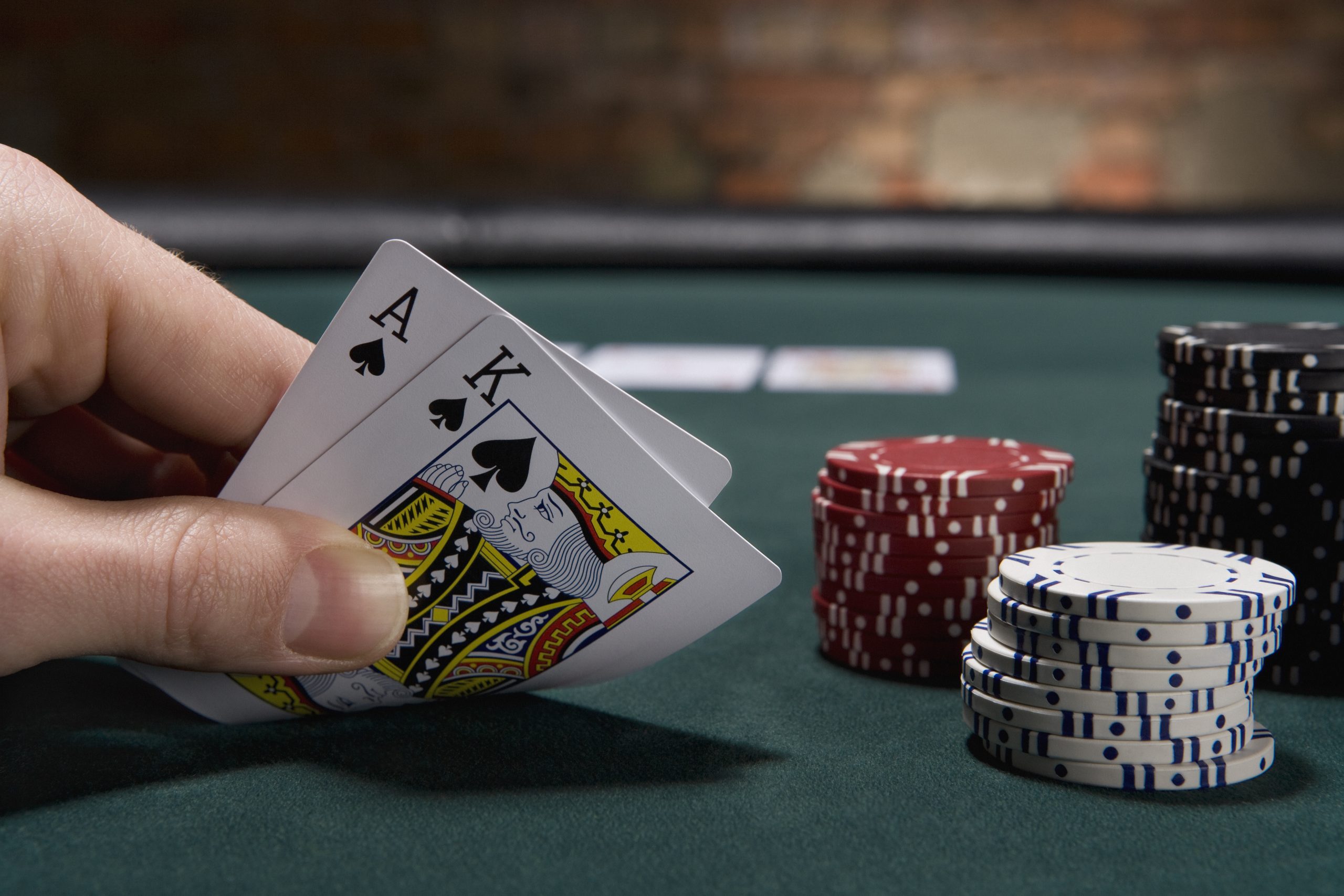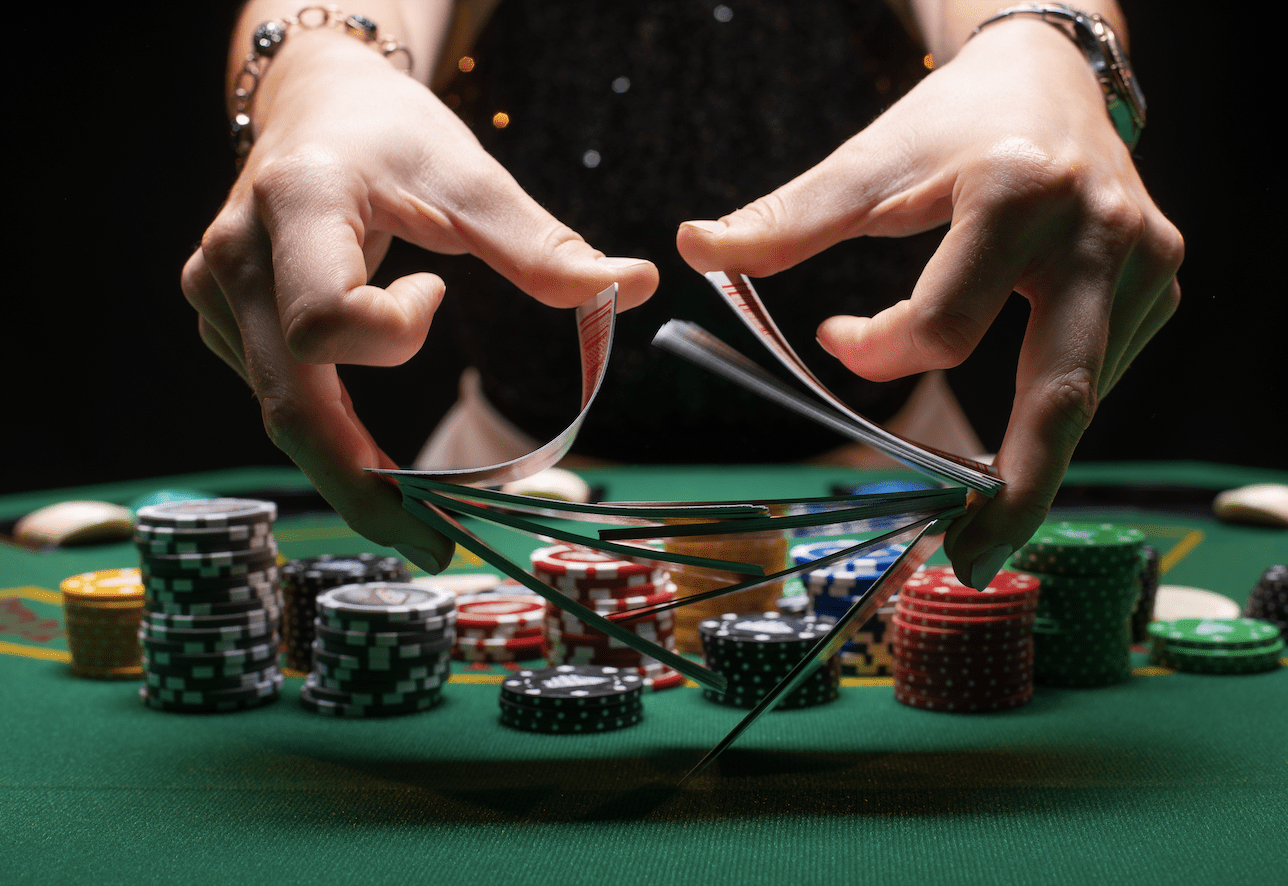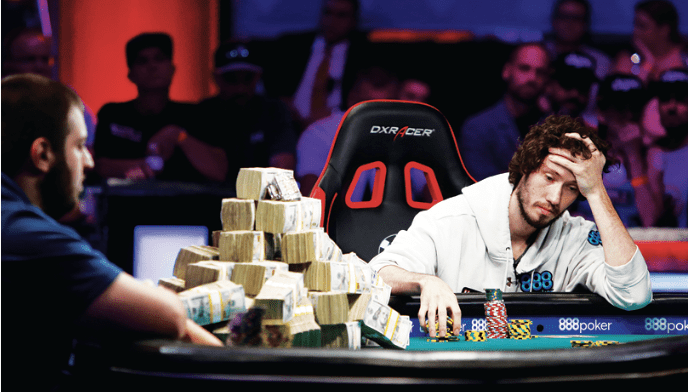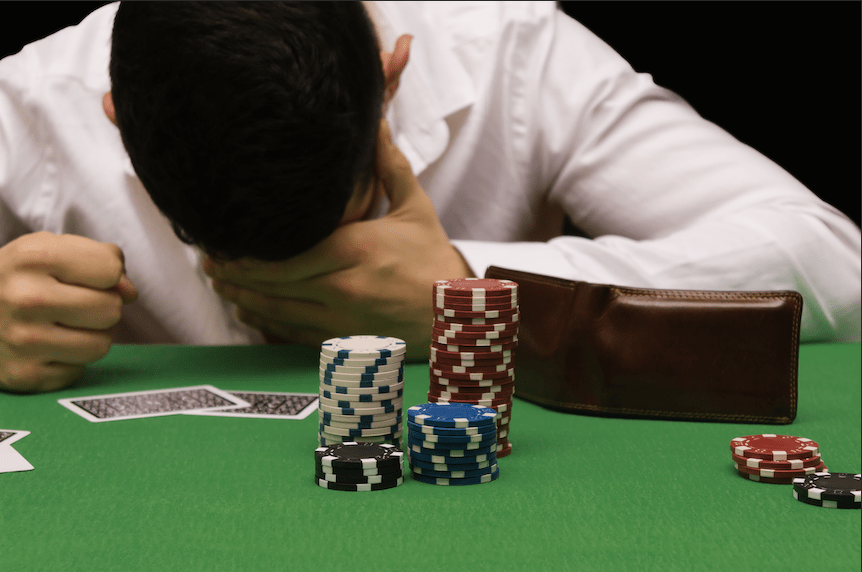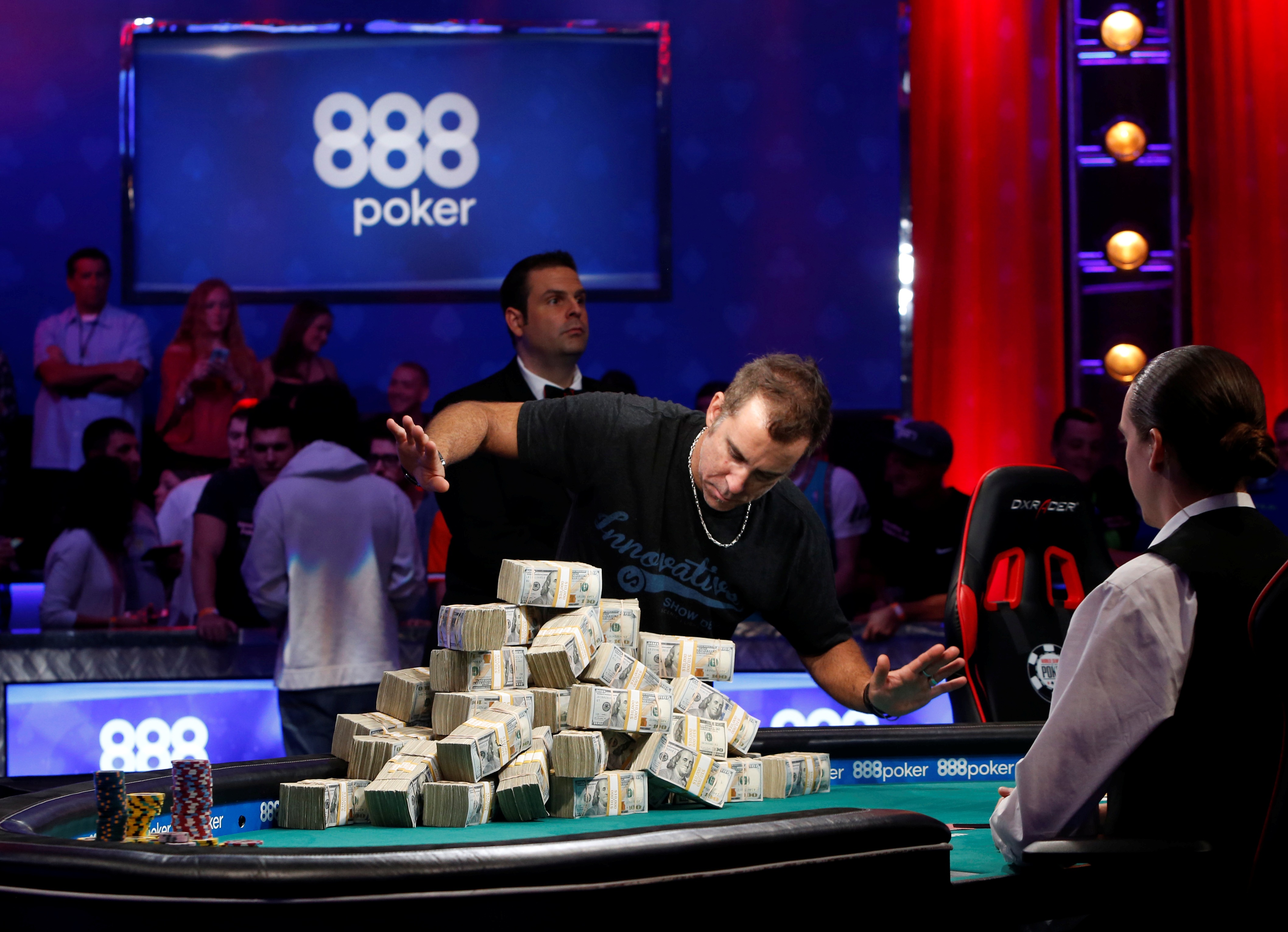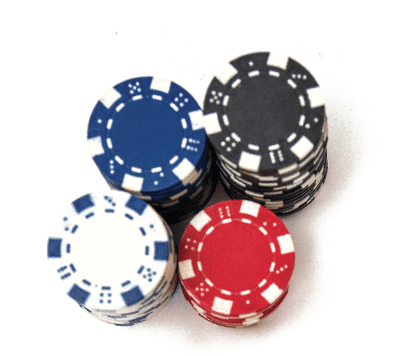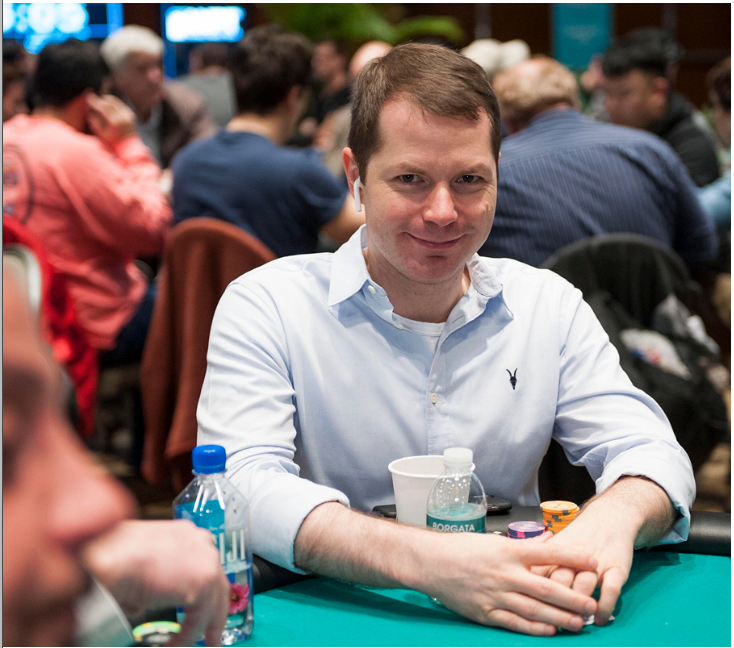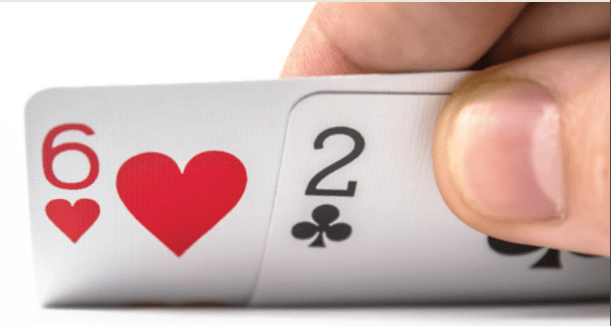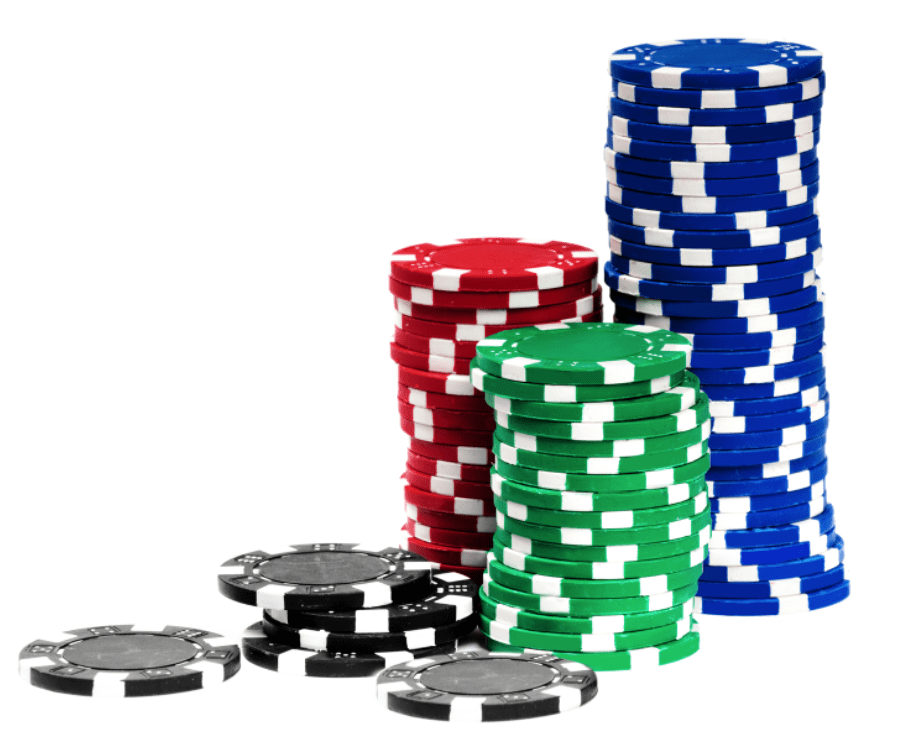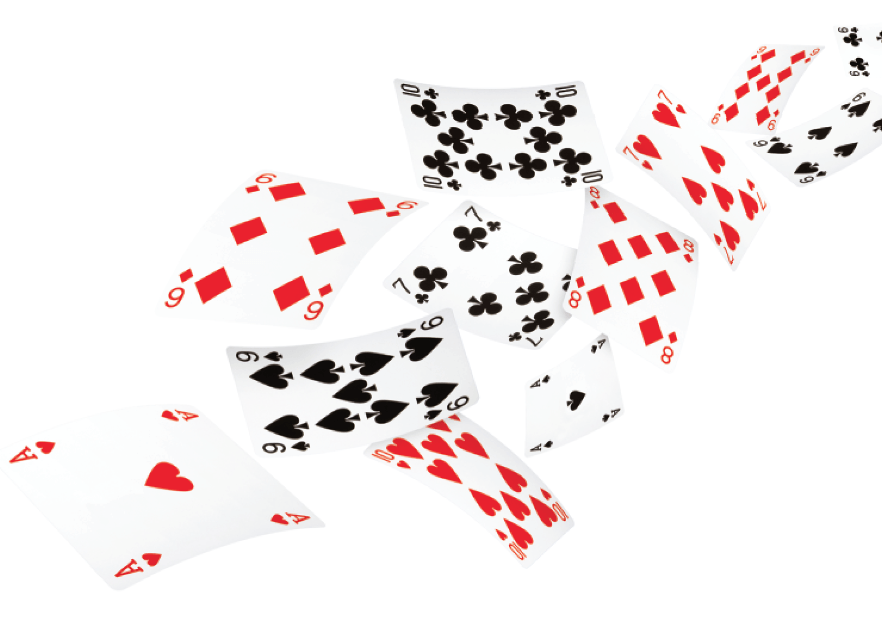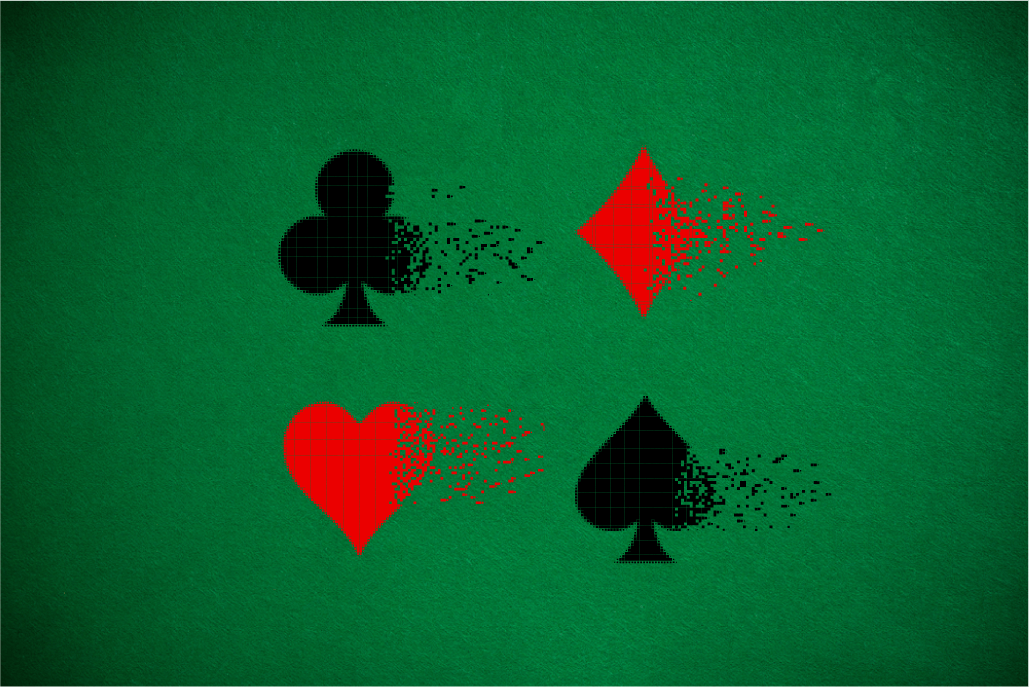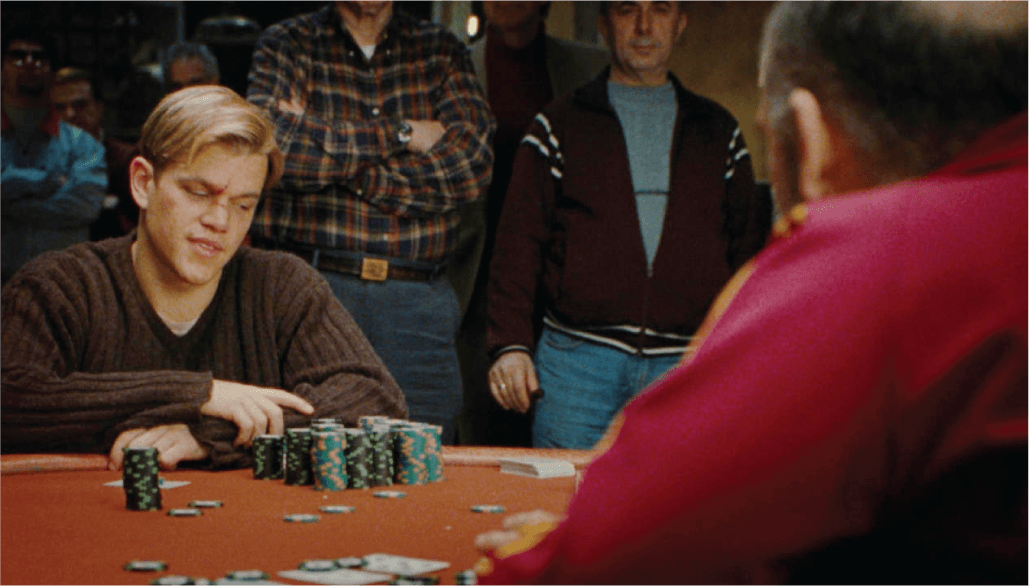Know Your Call Options
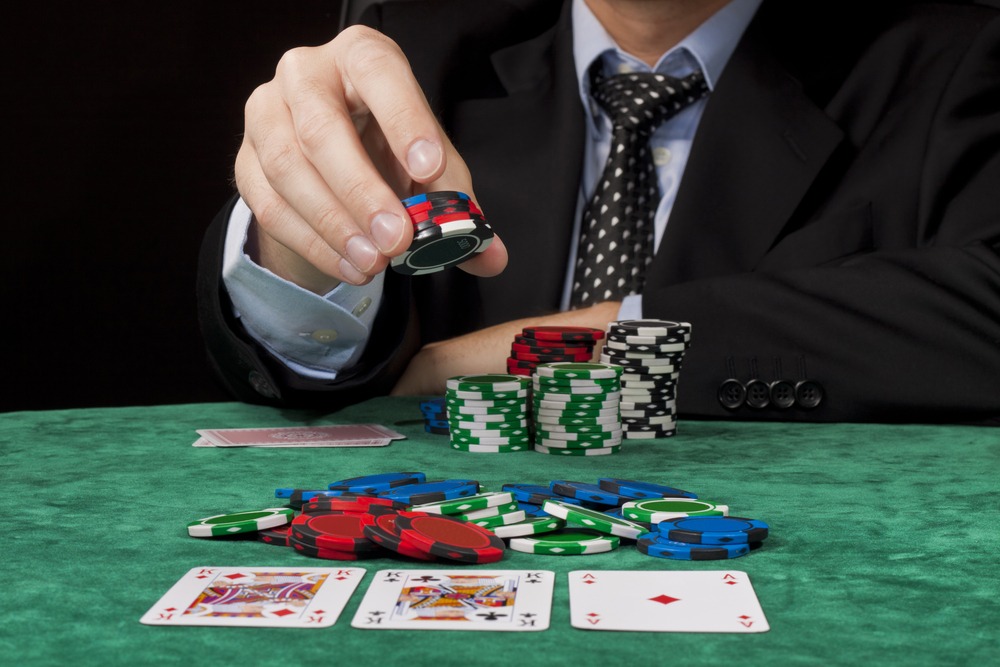
Recreational poker players often assume their goal is to patiently wait for a premium hand and then jam their money into the pot. However, that’s one of the worst mistakes a player can make. While getting money all-in with the best hand is important, by sitting around and waiting for a strong hand, a player folds away small amounts of money when failing to make a pair on the flop. Even worse, when a player is lucky enough to make a reasonable hand, such as middle pair, he or she may end up folding by the river when an opponent makes multiple bets, resulting in losing a medium-sized pot without even seeing the showdown.
Whenever players make deci- sions at the poker table, they should consider the mathematical proposition that’s offered. Consider not only the pot odds, but also the Minimum Defense Frequency, which is the percentage of time needed to either raise or call to avoid being exploitable by maniacal aggression.
For example, if the pot is $300 and an opponent bets $150, if that opponent wins the pot more than 33% of the time, his bluffs immediately profit. To figure out how often a total bluff needs to succeed, take the bluff amount and divide it by the bluff amount plus the size of the pot. So in this case, it would be $150/ ($150+300) = 33%. In order not to be immediately exploitable, defend at least 67% of the time (100% – 33%). That number is the Minimum Defense Frequency.
To figure out what 67% of a hand range looks like, spend time away from the poker table dissecting and analyzing the entire range. That’s the exact opposite of what many players do. Instead, they speculate about how to play a specific hand, such as Ace-King; or types of hands, like flush draws. Instead, look at the big picture, not the specific holding in this specific hand, and consider how to play each hand in the entire range in each situation.
If the idea of range analysis seems foreign, reviewing the quizzes and challenge questions on the poker-coaching.com site will bring players up to speed, enabling them to think about and play poker at a high level.
For the most part, as the flop, turn and river become less coordinated, players should defend with more holdings that are traditionally thought marginal or weak. Suppose someone raises from middle position and a player calls in the big blind. The flop comes 8 ♣ 3 ♥ 2 ♠ and an opponent bets about 35% of the size of the pot. Don’t fold hands like K-9 or Q-J, even though they lose to all decent hands. King-high and Queen-high are quite weak, but they occasionally improve to strong top pairs.
When they don’t, a player may win unimproved if he or she gets to the showdown or decides to bluff on the river when the board gets scary. Also consider check-raising on the flop with hands that are not quite good enough to call with but still have some equity, such as T-9 and 6-4. This will put an opponent in a tough spot with most of his or her marginal and weak holdings.
When facing a larger bet size, defend less often. For example, if the pot is $1,000 and an opponent makes a gigantic $3,000 bet, defend 25% of the time because his bluffs need to succeed 75% of the time, $3,000/($1,000+$3,000).
Against large bets, play snuggly because an opponent is risking a lot to win a little. That said, stick around with most of strong pairs and strong draws, assuming an opponent is known to use gigantic bets on a regu- lar basis.
While it is vital to at least consider the Minimum Defense Frequency against strong players and overly aggressive players, some players in a specific game may play in an overly cautious manner. If a player knows from experience that opponents are cautious and bet only when they’re confident they are going to win the pot, then continue nowhere near the Minimum Defense Frequency. If a player knows an opponent will bet the flop, turn and river with only three-of-a-kind or a better made hand and will rarely (or never) bluff, then fold almost everything.
To win substantial money from poker, play with opponents of lesser ability and then take advantage of the flaws in their strategy
When a player has a clear idea of the mistakes opponents are likely to make, that player should not be afraid to drastically deviate from a fundamentally sound strategy to take advantage of them. The way to win substantial money from poker is to play with opponents with less ability, and then adjust one’s default strategy to take advantage of the flaws in their strategy.
That said, many players win from poker simply due to their opponents folding too often. If all a player has to do to win is make a bet, poker is easy! When facing one of those overly aggressive players, instead of folding and playing directly into their strength, turn their aggression into their biggest weakness by calling down much more often than they expect, which results in catching their big bluffs and collecting their chips.
Jonathan Little, a professional poker player and World Poker Tour Player of the Year, has amassed more than $7 million in live tournament winnings and written 14 best-selling books. @JonathanLittle

